Honda HR-V vs Lexus ES - Differences and prices compared
Compare performance (131 HP vs 218 HP), boot space and price (29700 £ vs 46600 £ ) at a glance. Find out which car is the better choice for you – Honda HR-V or Lexus ES?
Costs and Efficiency:
When it comes to price and running costs, the biggest differences usually appear. This is often where you see which car fits your budget better in the long run.
Honda HR-V has a significantly advantage in terms of price – it starts at 29700 £ , while the Lexus ES costs 46600 £ . That’s a price difference of around 16843 £.
Fuel consumption also shows a difference: Lexus ES manages with 5.10 L and is therefore slight more efficient than the Honda HR-V with 5.40 L. The difference is about 0.30 L per 100 km.
Engine and Performance:
Power, torque and acceleration say a lot about how a car feels on the road. This is where you see which model delivers more driving dynamics.
When it comes to engine power, the Lexus ES has a clearly perceptible edge – offering 218 HP compared to 131 HP. That’s roughly 87 HP more horsepower.
In acceleration from 0 to 100 km/h, the Lexus ES is a bit quicker – completing the sprint in 8.90 s, while the Honda HR-V takes 10.60 s. That’s about 1.70 s faster.
In terms of top speed, the Lexus ES performs barely noticeable better – reaching 180 km/h, while the Honda HR-V tops out at 170 km/h. The difference is around 10 km/h.
Space and Everyday Use:
Whether family car or daily driver – which one offers more room, flexibility and comfort?
Both vehicles offer seating for 5 people.
In curb weight, Honda HR-V is a bit lighter – 1452 kg compared to 1680 kg. The difference is around 228 kg.
In terms of boot space, the Lexus ES offers distinct more room – 454 L compared to 319 L. That’s a difference of about 135 L.
When it comes to payload, Lexus ES somewhat takes the win – 470 kg compared to 418 kg. That’s a difference of about 52 kg.
Who comes out on top?
Overall, the Lexus ES shows itself to be dominates this comparison and secures the title of DriveDuel Champion.
It convinces with the more balanced overall package and proves to be the more versatile choice for everyday use.
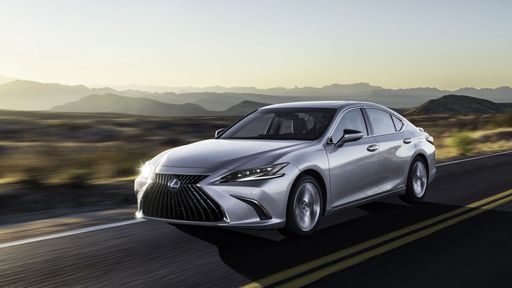
Lexus ES
Costs and Consumption
View detailed analysis
Engine and Performance
View detailed analysis
Dimensions and Body
View detailed analysis
Honda HR-V
The Honda HR-V is the sensible compact crossover that blends roomy practicality with a composed, friendly drive, making it an easy pick for buyers who want everyday usability without fuss. It won’t thrill hardcore enthusiasts, but its clever packaging, comfortable cabin and low-key styling make life simpler — and that’s exactly the point.
details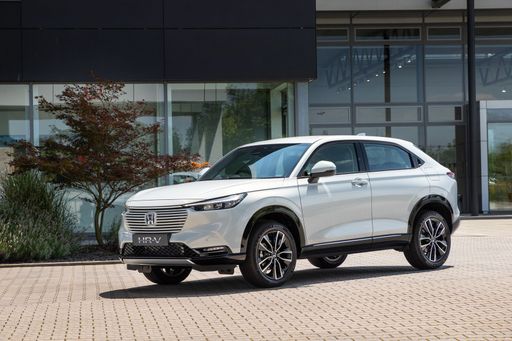
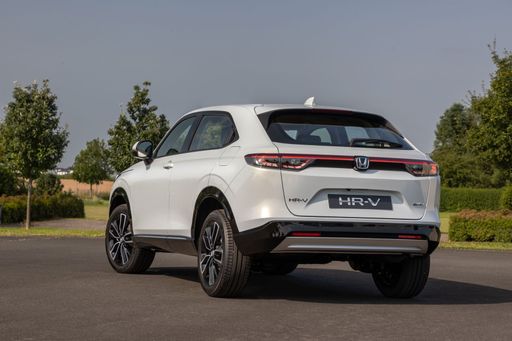

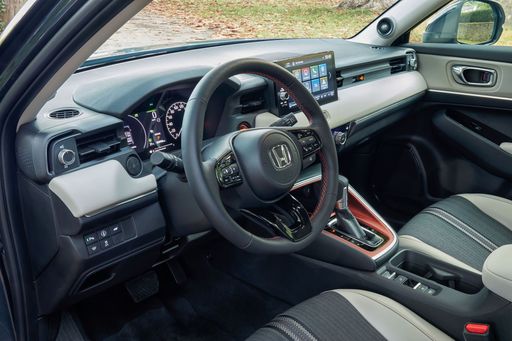
Lexus ES
The Lexus ES delivers a supremely comfortable, quietly luxurious experience that favors serene cruising over sporting theatrics. It wraps everyday practicality, top-notch build quality and unimpeachable reliability in a handsome, grown-up package that will appeal to buyers who prize calm refinement over headline-grabbing excitement.
details
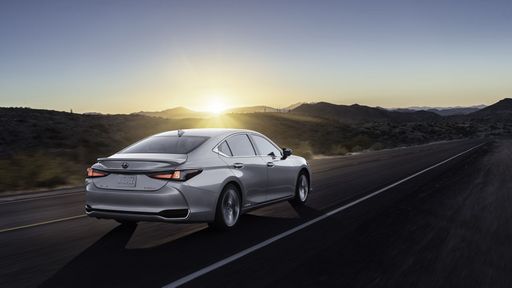

Costs and Consumption |
|
|---|---|
|
Price
29700 - 35400 £
|
Price
46600 - 59300 £
|
|
Consumption L/100km
5.40 L
|
Consumption L/100km
5.10 L
|
|
Consumption kWh/100km
-
|
Consumption kWh/100km
-
|
|
Electric Range
-
|
Electric Range
-
|
|
Battery Capacity
-
|
Battery Capacity
-
|
|
co2
122 g/km
|
co2
115 g/km
|
|
Fuel tank capacity
40 L
|
Fuel tank capacity
50 L
|
Dimensions and Body |
|
|---|---|
|
Body Type
SUV
|
Body Type
Sedan
|
|
Seats
5
|
Seats
5
|
|
Doors
5
|
Doors
4
|
|
Curb weight
1452 kg
|
Curb weight
1680 kg
|
|
Trunk capacity
319 L
|
Trunk capacity
454 L
|
|
Length
4355 mm
|
Length
4975 mm
|
|
Width
-
|
Width
1865 mm
|
|
Height
1582 mm
|
Height
1445 mm
|
|
Max trunk capacity
1289 L
|
Max trunk capacity
-
|
|
Payload
418 kg
|
Payload
470 kg
|
Engine and Performance |
|
|---|---|
|
Engine Type
Full Hybrid
|
Engine Type
Full Hybrid
|
|
Transmission
Automatic
|
Transmission
Automatic
|
|
Transmission Detail
CVT
|
Transmission Detail
CVT
|
|
Drive Type
Front-Wheel Drive
|
Drive Type
Front-Wheel Drive
|
|
Power HP
131 HP
|
Power HP
218 HP
|
|
Acceleration 0-100km/h
10.6 - 10.8 s
|
Acceleration 0-100km/h
8.90 s
|
|
Max Speed
170 km/h
|
Max Speed
180 km/h
|
|
Torque
253 Nm
|
Torque
-
|
|
Number of Cylinders
4
|
Number of Cylinders
4
|
|
Power kW
96 kW
|
Power kW
160 kW
|
|
Engine capacity
1498 cm3
|
Engine capacity
2487 cm3
|
General |
|
|---|---|
|
Model Year
2025
|
Model Year
2024
|
|
CO2 Efficiency Class
D
|
CO2 Efficiency Class
C
|
|
Brand
Honda
|
Brand
Lexus
|
What drive types are available for the Honda HR-V?
The Honda HR-V is available as Front-Wheel Drive.




